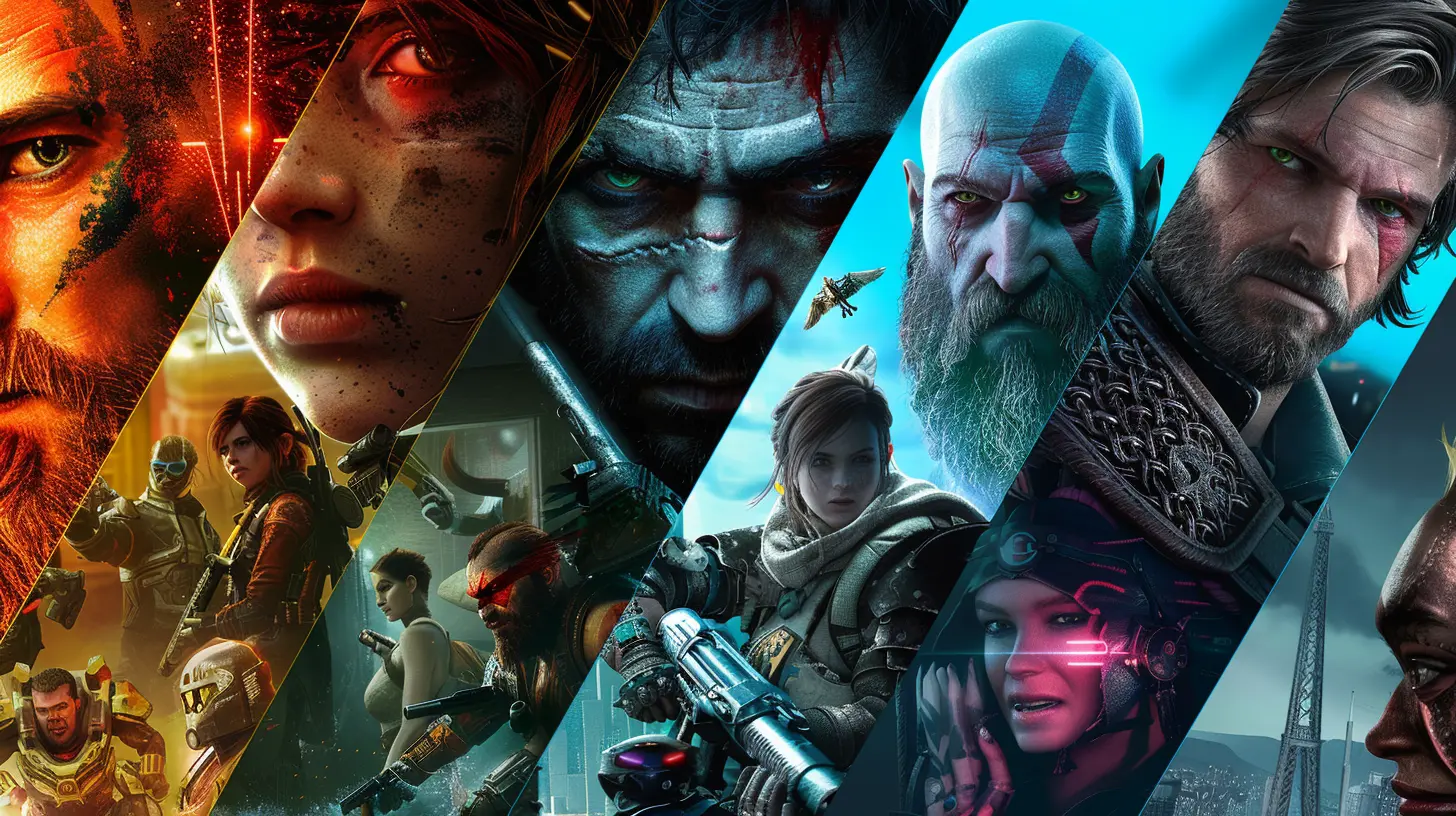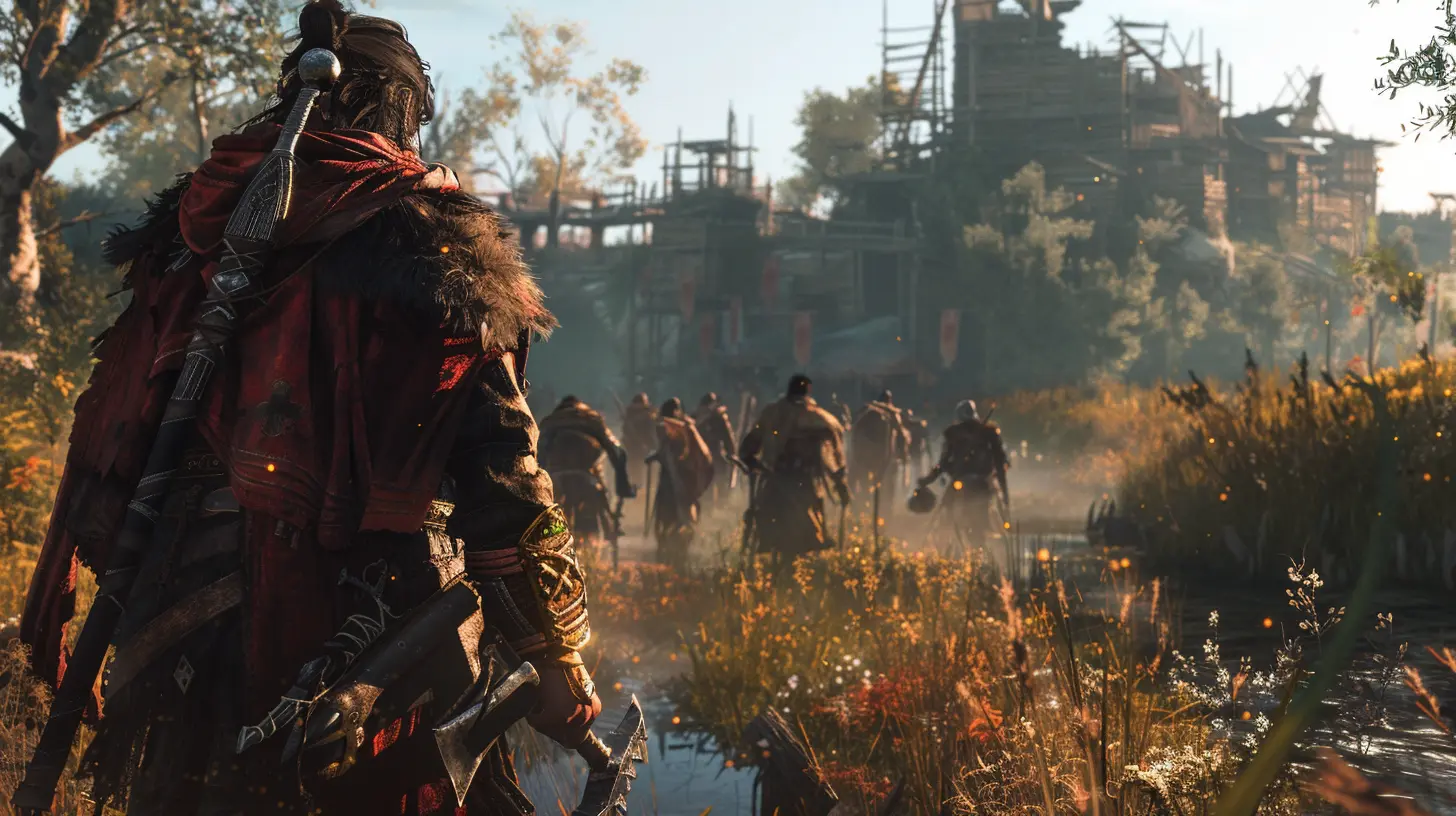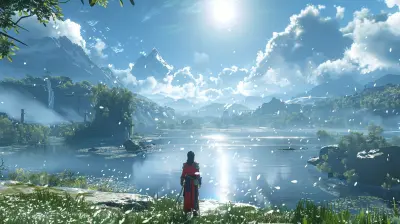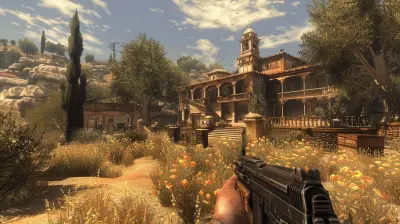How Community Feedback Shapes the Best Early Access Games
3 June 2025
The video game industry has evolved at warp speed over the years, with fancy graphics, groundbreaking storylines, and gameplay mechanics keeping us glued to our screens. But if there’s one thing that has truly revolutionized gaming, it's the introduction of Early Access games. This model hands the reins to the gaming community, allowing players to influence the development process directly. And let’s be real for a second—who doesn’t love the idea of shaping a game they’re already emotionally invested in?
In this article, we’re going to dive headfirst into how community feedback has become the secret ingredient to crafting some of the best Early Access games. From the power of player reviews to the delicate balance between listening and leading, let’s uncover how game developers leverage this feedback to polish their masterpieces. 
What Exactly Are Early Access Games?
First off, let’s set the stage. For those who might be scratching their heads over the term, Early Access is essentially a sneak peek into a game’s development. Developers release a not-quite-finished version of their game to the public, inviting players to test it out, provide feedback, and even catch bugs. It’s like being part of an exclusive club where you get a front-row seat to the game-making process.In return, developers get much-needed funding and a treasure trove of real-world insights from actual players. It’s a win-win for both sides, assuming it’s done right. And when developers actually listen to their players? That’s when the magic happens. 
Why Community Feedback is a Game-Changer
Let’s face it—players are brutally honest. If there’s a glitch, an awkward mechanic, or just something that feels off, you can bet someone will point it out. These raw, unfiltered opinions are pure gold for developers.But it’s not just about pointing out flaws (though that’s super important). Feedback also helps developers fine-tune gameplay, introduce features players are clamoring for, and even pivot the direction of their game if something’s not clicking.
Think about it like baking cookies. Sure, you can follow the recipe, but if your taste-tester tells you the cookies need more chocolate chips or a pinch of salt? You tweak it. The same concept applies to video games. 
How Developers Gather Feedback in Early Access
Developers don’t have to guess what players think—players tell them! But how do they gather all that sweet user input? Let’s break it down:1. In-Game Feedback Tools
Many Early Access games include built-in tools that let players share their thoughts without ever leaving the game. Think of it as a digital suggestion box, but way cooler.2. Community Hubs (Forums, Discord, etc.)
Forums and platforms like Discord act as buzzing hubs for communication. Players discuss mechanics, post bug reports, and even throw around ideas for new features. These spaces are often gold mines for developers.3. Surveys and Polls
A quick poll asking “Which feature do you want next?” can do wonders. It’s like asking your friends where to eat—it’s efficient, it saves time, and everyone feels heard.4. Social Media
Let’s not forget Twitter, Reddit, and other social platforms. Developers often keep an ear to the ground on these platforms to gauge what the overall sentiment is about their game. (And yes, they do read your tweets.)5. Steam Reviews and Feedback Threads
Steam reviews are like Yelp for games, and Early Access titles garner thousands of them. Developers often comb through these reviews to identify common complaints or frequent praises.
The Ripple Effect of Community Feedback
Community feedback doesn’t just improve games—it shapes them. Let’s explore some real-world examples to see this in action.1. No Man’s Sky: A Comeback Story
Okay, technically No Man’s Sky wasn’t an Early Access game, but its tale speaks volumes about the importance of feedback. When the game launched, the backlash was volcanic. Instead of throwing in the towel, the developers at Hello Games buckled down, listened to their community, and slowly transformed it into one of the most beloved space exploration games around. Without community feedback? That redemption arc probably wouldn’t have happened.2. Phasmophobia
If you’re into ghost hunting with your buddies, you’ve probably played Phasmophobia. This chilling co-op horror game launched in Early Access in 2020 and quickly became a hit. The developers actively listened to their player community, rolling out updates based on feedback. Whether it was new maps, ghost types, or quality-of-life improvements, everything felt player-driven.3. Hades: Perfection Through Iteration
Supergiant Games brought Hades to Early Access in 2018, and it absolutely crushed it. Why? Because they released updates based on player feedback every 8 weeks. Players suggested weapon balance tweaks, new skills, and creative narrative expansions, and the developers delivered. The result was a masterpiece that snagged Game of the Year nominations all over the place.Balancing Developer Vision with Player Input
Now, let’s pump the brakes for a second. Listening to your community is crucial, but there’s a fine line between collaboration and chaos.If developers try to implement every suggestion, they risk turning their game into a Franken-game—disjointed and all over the place. At the same time, ignoring feedback altogether? That’s a surefire way to alienate your player base.
The trick lies in finding a balance. Developers need to stay true to their vision while incorporating ideas that genuinely improve gameplay. It’s like being a chef—you can get creative with your dishes, but you still need to cook what your customers will eat.
The Downsides of Community Feedback
Alright, let’s keep it real—community feedback isn’t always sunshine and rainbows. It comes with its own set of challenges.1. Overwhelming Volume
Some games attract thousands of players during Early Access. That’s a lot of opinions to sift through, and not all of them are helpful. Filtering out the constructive feedback from the noise can be a Herculean task.2. Unrealistic Expectations
Sometimes, players can get a little, well, overzealous. They might demand features that are either technically impossible or don’t align with the game’s core vision. Managing these expectations is tricky.3. Trolls and Toxicity
Let’s not beat around the bush: the internet isn’t exactly known for its kindness. Toxic commentary and trolling can muddy the waters, making it harder for developers to extract useful insights.Why Early Access Is Here to Stay
Despite the challenges, Early Access has cemented itself as a cornerstone of modern game development. It’s a collaborative playground where developers and players come together to create something truly special. It’s also a way for smaller studios to compete with industry giants by creating games for the people, by the people.And honestly? The success stories speak for themselves. Games like Hades, RimWorld, and Subnautica prove that when developers listen to their communities, they can craft experiences that stand the test of time.
Wrapping It Up
At its heart, gaming is about connection—whether it’s battling it out in an MMO, solving puzzles in a solo adventure, or working together to shape an Early Access game. Community feedback gives players a voice, a sense of ownership, and a deeper bond with the games they love. It’s a revelation that has reshaped the industry, one patch note at a time.So the next time you fire up an Early Access game, remember this: Your feedback isn’t just a comment—it’s a contribution to something bigger. And who knows? Maybe your suggestion is the one that takes a game from “meh” to “masterpiece.
all images in this post were generated using AI tools
Category:
Early Access GamesAuthor:

Francesca West
Discussion
rate this article
3 comments
Kristen Collins
Community feedback is like a secret sauce for Early Access games—sometimes it’s spicy, sometimes sweet, and occasionally a bit weird! Who knew that a room full of gamers could brew up a cocktail of creativity and chaos? Cheers to that!
June 5, 2025 at 4:40 PM

Francesca West
Absolutely! Community feedback is essential in crafting unique and engaging experiences in Early Access games. It truly brings out the creativity and unpredictability of gamers! Cheers!
Pia Wilkerson
Community feedback is like the secret sauce in the recipe for early access games! It's where players sprinkle their thoughts, and developers whip up magic. Let's celebrate the joyful chaos of collaboration—because the best games are born from passionate players and creative minds working together!
June 4, 2025 at 2:41 PM

Francesca West
Absolutely! Community feedback truly enhances early access games, fostering a dynamic partnership between players and developers that leads to innovative and engaging experiences.
Lira Hubbard
This article highlights the essential role of community feedback in shaping early access games. It's refreshing to see developers prioritize player input, creating a more engaging experience. However, it’s crucial to balance feedback with a clear vision to maintain creativity.
June 3, 2025 at 3:55 PM

Francesca West
Thank you for your thoughtful comment! Balancing community feedback with a clear vision is indeed vital for creating engaging early access games while maintaining creative integrity.


